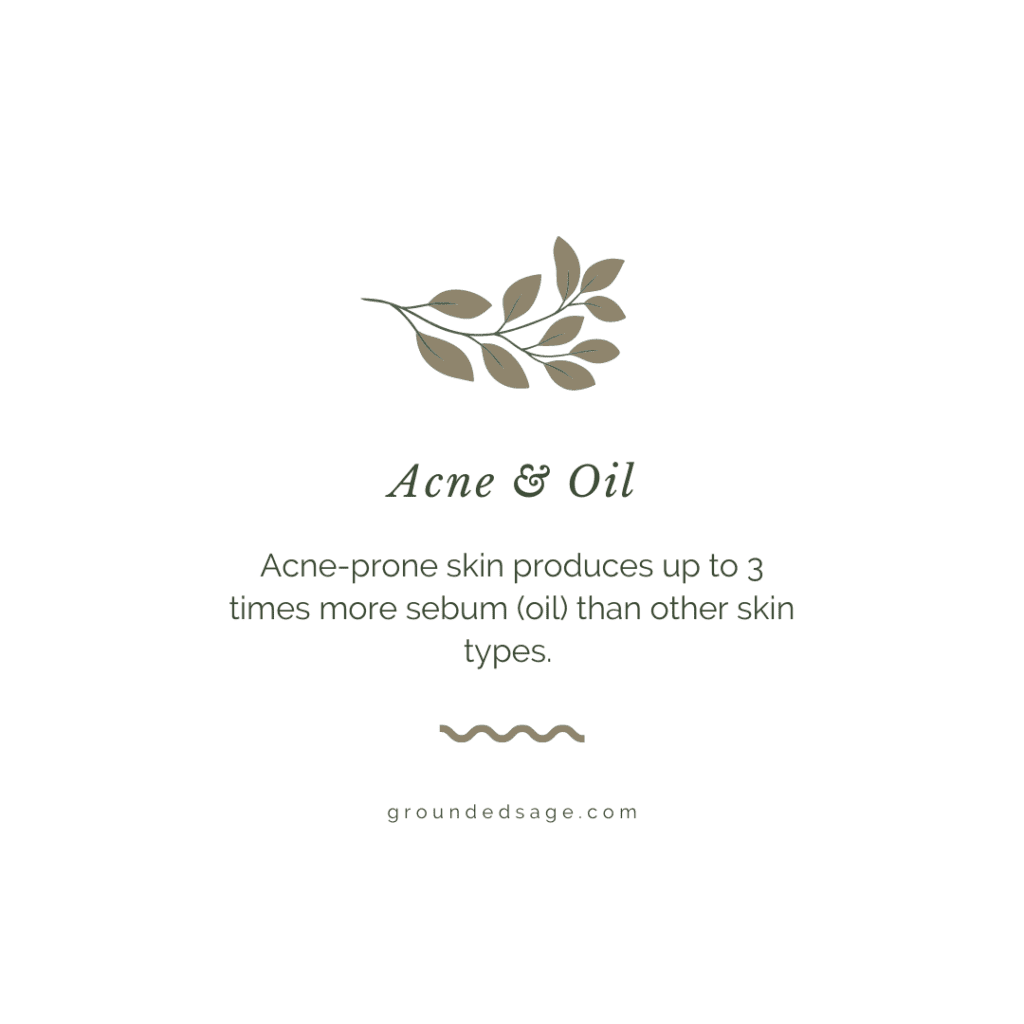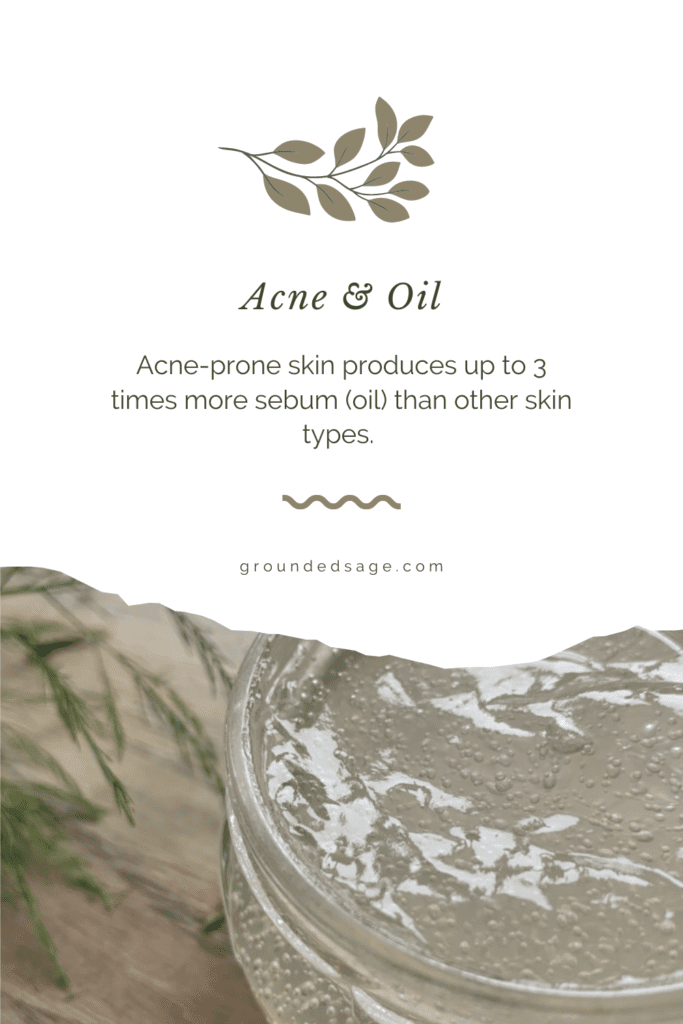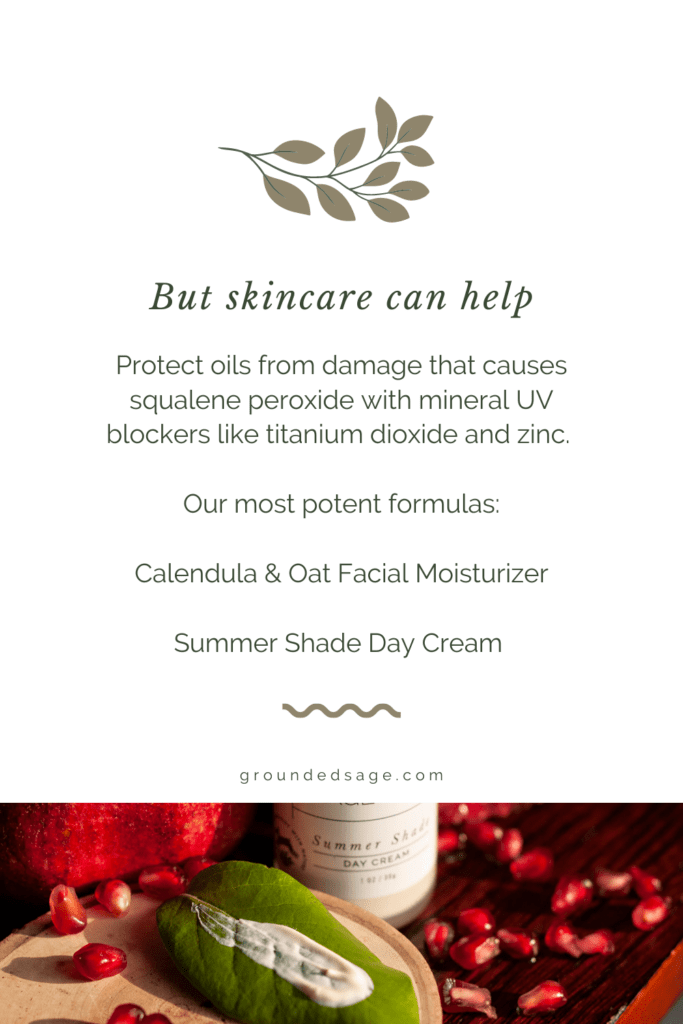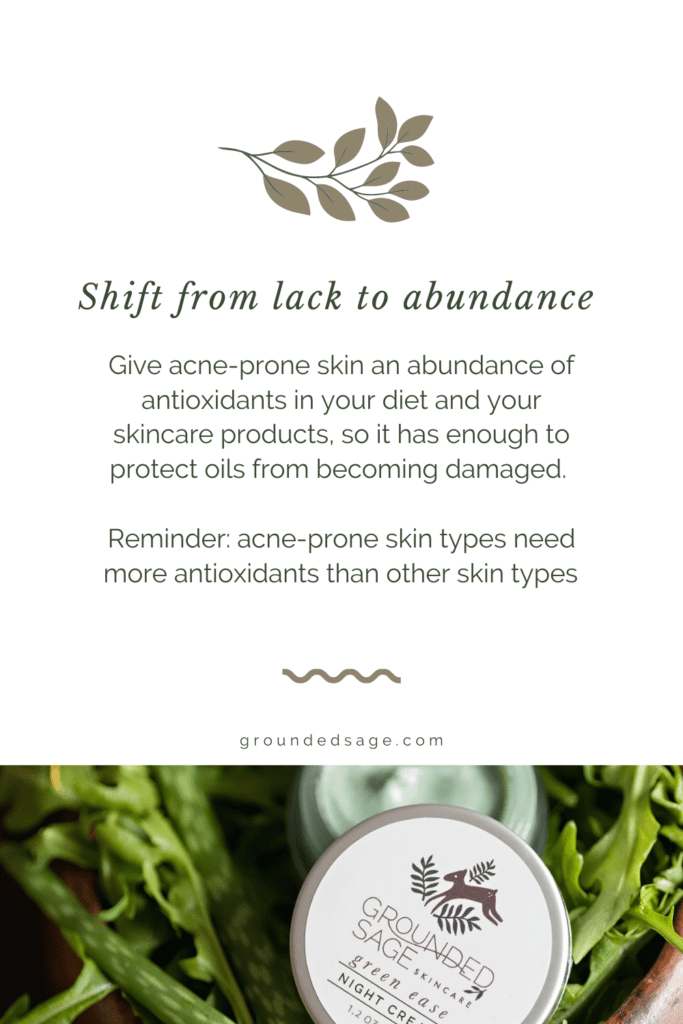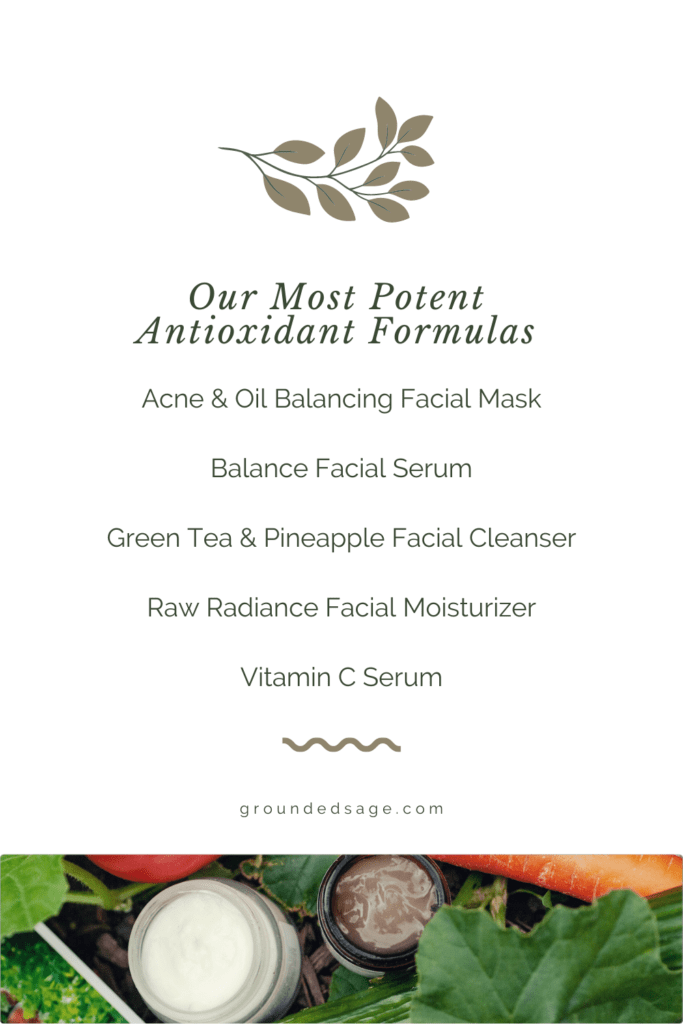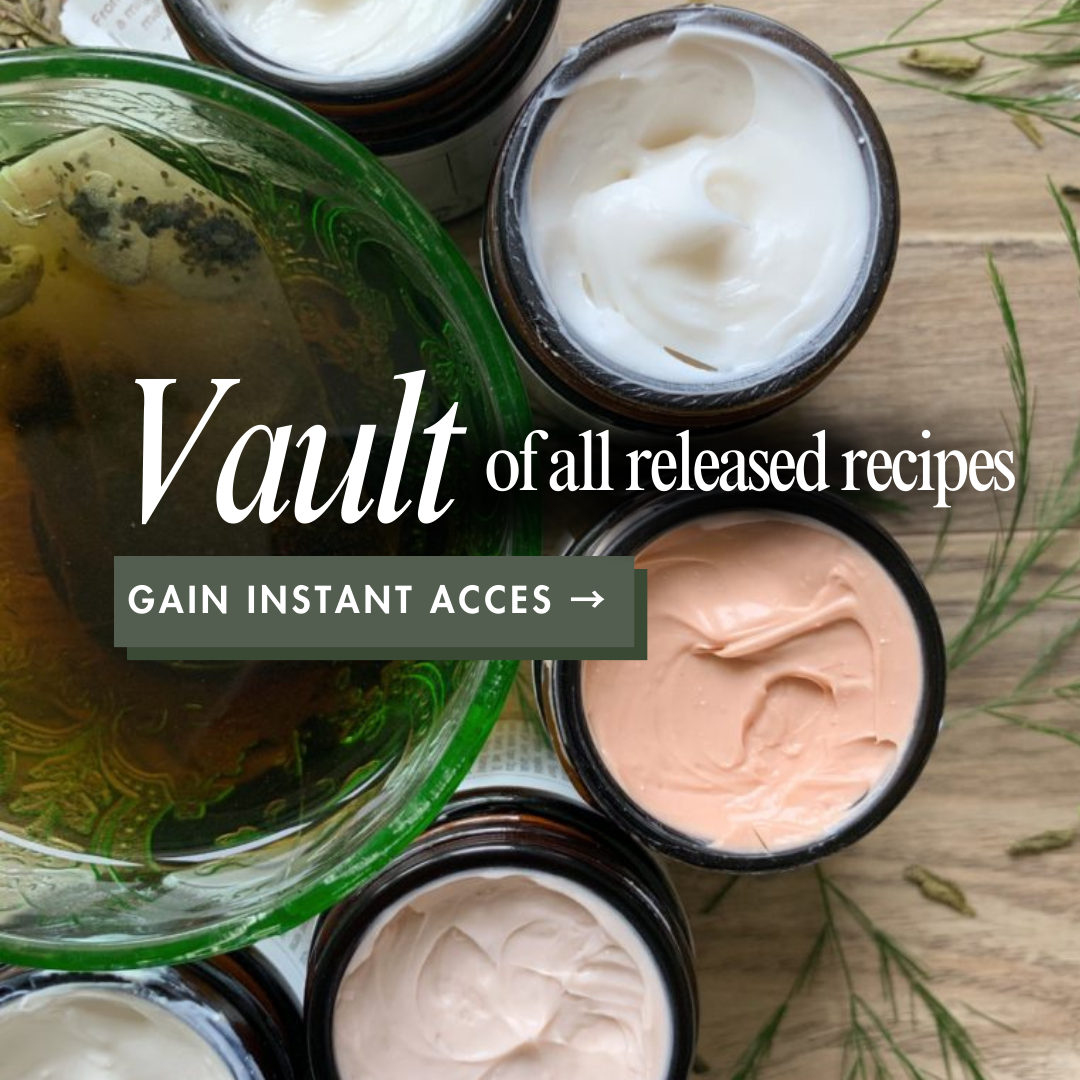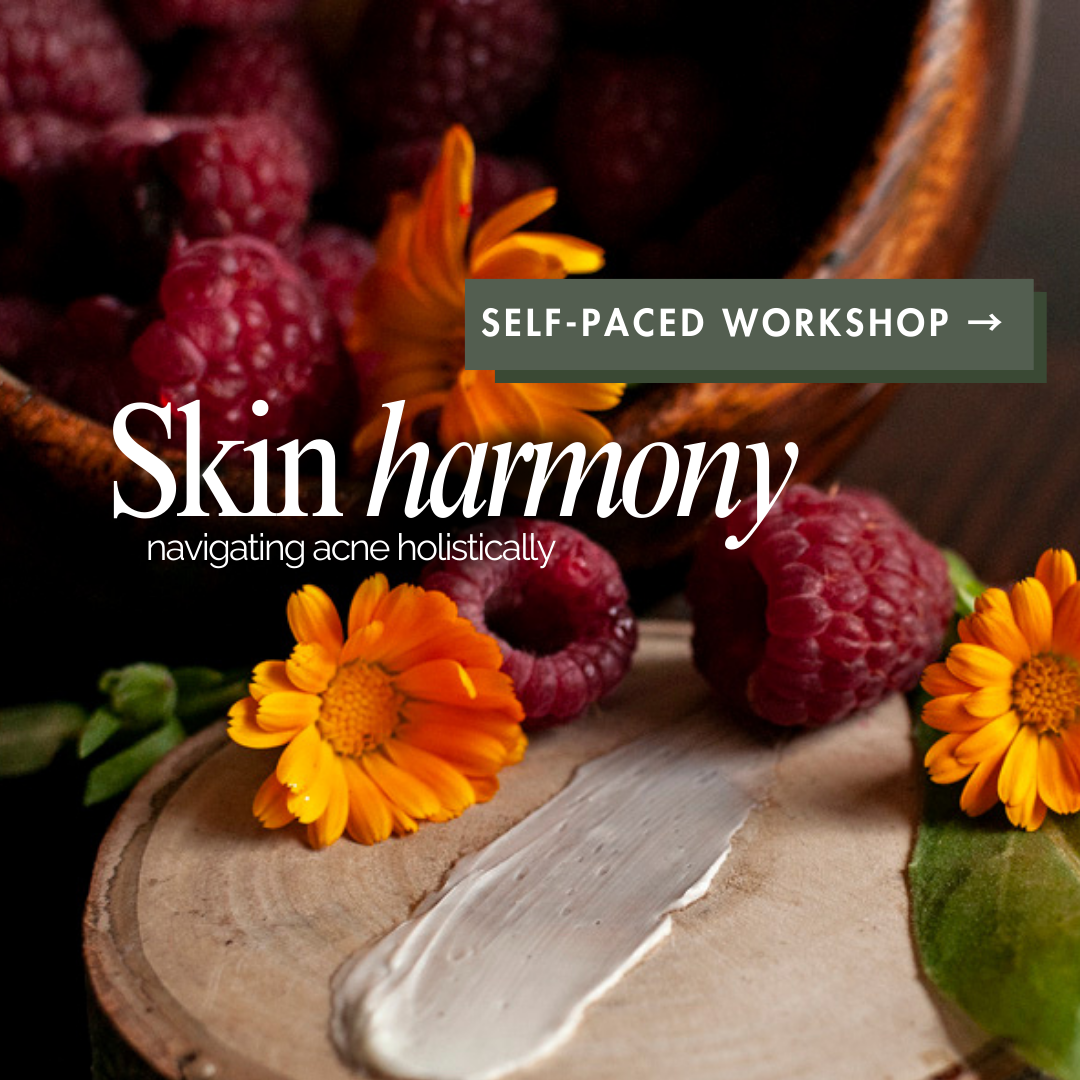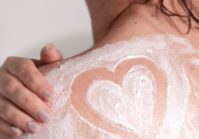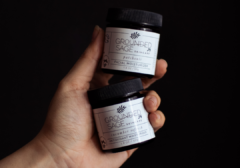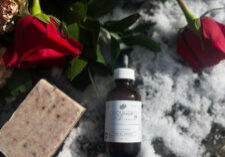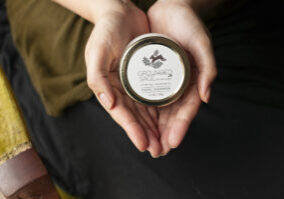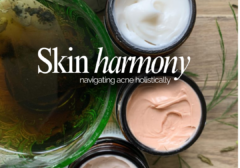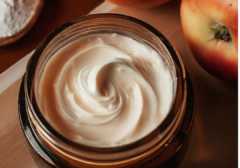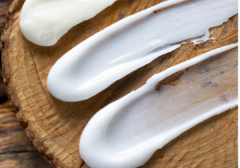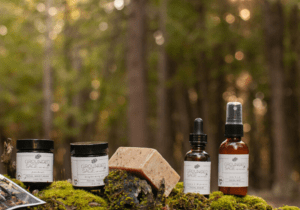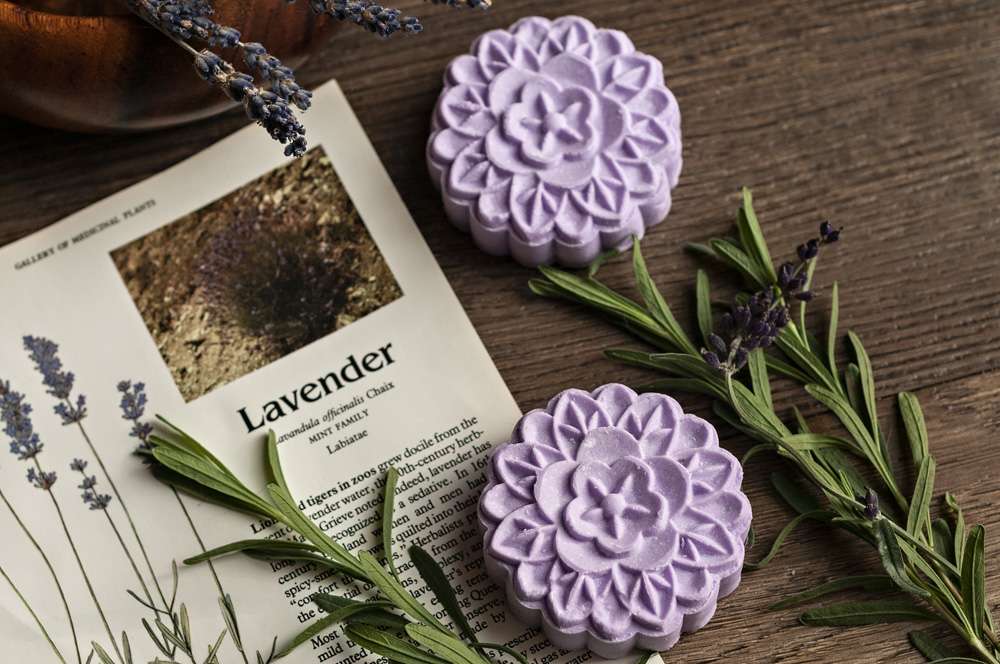What’s the deal with acne and oil?
The most basic explanation for how acne forms is this: pores get clogged, infected, inflamed and irritated.
But HOW do pores get clogged?
What causes inflammation?
Irritation?
Infection?
That’s what we’ll be looking at this month in the Facebook group!
Our series starts by looking at one aspect involved in the formation of acne: OIL
You’ll find the first post in our series below!
Oil & Our Skin
Oil’s role in skin health is vital.
In optimal conditions, healthy skin pushes oil to the skin’s surface and that oil lubricates the skin, keeping it soft and healthy.
Clear Pores
Oil, when unhindered, pushes debris out of the pores.
Protection
Oil also provides a protective barrier that is part of our immune system.
Acne and Oil
Acne-prone skin produces up to 3 times more sebum (oil) than other skin types.
Too much of a good thing?
The more oil your skin is producing, the more protection it needs in the form of antioxidants.
When there are not enough antioxidants to deal with the oil, the oil is vulnerable to oxidative damage.
Damaged Oils Equals Clogged Pores
When oxidative damage happens due to a lack of antioxidants the main component of sebum (aka the oil on our skin) forms a pore-clogging substance called squalene peroxide.
It’s more than skincare that can clog pores
Squalene peroxide is the most pore-clogging substance your skin will face.
But skincare can help
Protect oils from damage that causes squalene peroxide with mineral UV blockers like titanium dioxide and zinc.
Our most potent formulas:
Calendula & Oat Facial Moisturizer
Shift from lack to abundance
Give acne-prone skin an abundance of antioxidants in your diet and your skincare products, so it has enough to protect oils from becoming damaged.
Reminder: acne-prone skin types need more antioxidants than other skin types
Our most potent antioxidant-rich formulas:
Acne & Oil Balancing Facial Mask
Green Tea & Pineapple Facial Cleanser
Raw Radiance Facial Moisturizer

